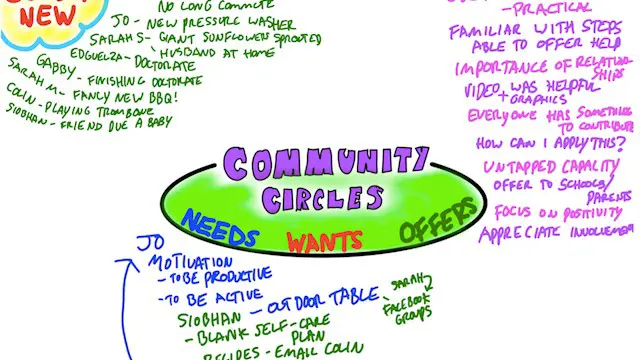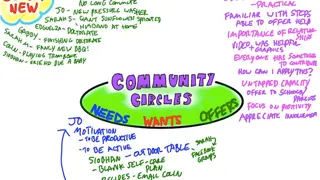
Community Circles Training
Learn an easy way to build Community in your local area with this practical guide
Inclusive Solutions UK Limited
Summary
- Reed courses certificate of completion - Free
Add to basket or enquire
Overview
Hi, I’m Colin Newton - Psychologist and Director at Inclusive Solutions.
I have spent my career committed to inclusive education and have run many PATH and MAP sessions for over 20 years. I still love this unique approach and am sure you will too. I was privileged to learn this way of working directly from the creators Jack Pearpoint, Marsha Forest and John O'Brien.
Curriculum
Course media
Description
About this course
In this course we will explore how we have attempted to build inclusive circles of support around individuals and contrast this with a radical approach to hospitality and community building – the Community Circle.
The course features the high quality video that can also be found in the the 35 minute video training guide course but provides much more besides.
The purpose of community circles is to bring people from a local community together to share their skills, talents, gifts and resources. This idea is based upon the premise that ALL of us need three things in our lives to make us happy and fulfilled, these being money, friendship andmeaning. We believe that everyone needs a community, everyone needs to be heard and everyone needs to have fun.
Community Circles are based upon reciprocity and the assumption that everyone has both gifts and needs – whether these are labelled or not. The circles adopt the fundamental value of inclusion that ‘all means all’ - no one is excluded from community circles, rather the circlemembers work out how to include everyone equally and safely instead.
A community circle is made up of participants and allies from the local community. The meeting starts with everyone sharing food and conversations. Next the group comes together in a circle so that everyone can see each other and share what is good and new in their lives with everyone getting a turn to be listened to. ‘New and Good’ breaks the habit of thinking about and acting from what’s wrong, it is an exercise of giving and receiving attention with one another and it provides a strong foundation of strengths from which we can think about and tackle difficulties. The group is then asked the question: what do they want, need or have to offer?
Community circles provide a great foundation or starting point from which to explore connections, build relationships, locate resources and share skills. These circles will be a particularly important resource for Brokers and the people that they work for. They provide a safe forum in which people can meet and friendships can start, a natural reservoir of people and relationships where people can be invited to offer their time and capacity.
To be successful we begin with a belief in inclusion. A belief that:
- We are all born ‘in’.
- All means all.
- Everyone needs to belong.
- Everyone is ready.
- Everyone needs support.
- Everyone can communicate.
- Everyone can contribute.
- Together we are better.
Questions and answers
Currently there are no Q&As for this course. Be the first to ask a question.
Certificates
Reed courses certificate of completion
Digital certificate - Included
Will be downloadable when all lectures have been completed
Reviews
Currently there are no reviews for this course. Be the first to leave a review.
Legal information
This course is advertised on reed.co.uk by the Course Provider, whose terms and conditions apply. Purchases are made directly from the Course Provider, and as such, content and materials are supplied by the Course Provider directly. Reed is acting as agent and not reseller in relation to this course. Reed's only responsibility is to facilitate your payment for the course. It is your responsibility to review and agree to the Course Provider's terms and conditions and satisfy yourself as to the suitability of the course you intend to purchase. Reed will not have any responsibility for the content of the course and/or associated materials.


